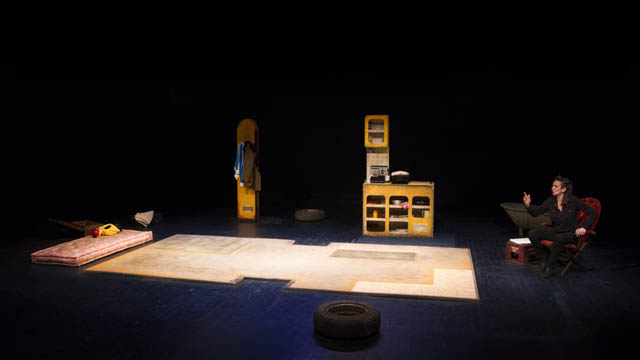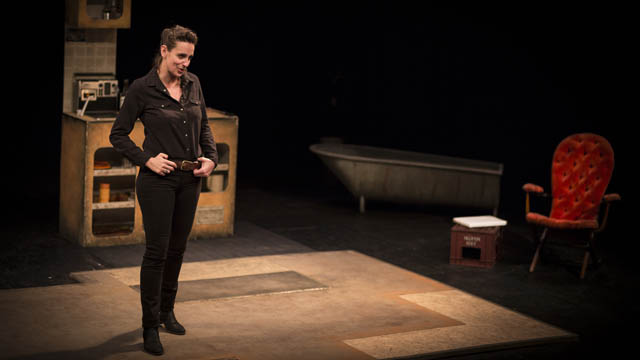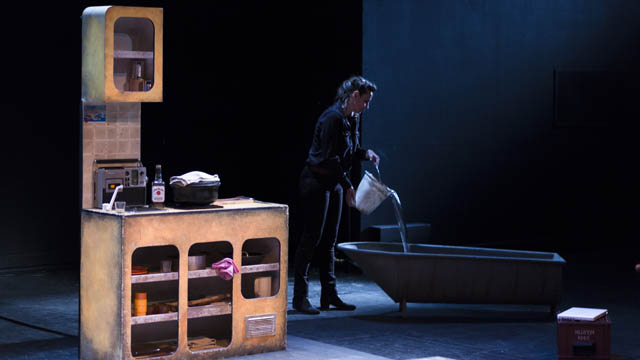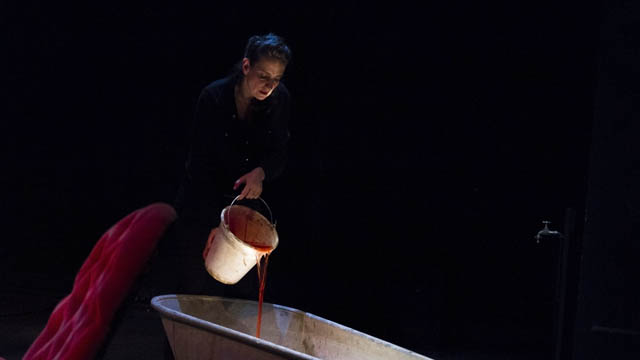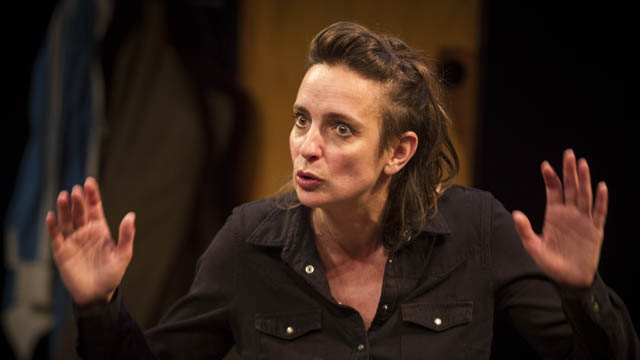In part one of my play, Clytemnestr@pocalypse, the title character tells the story of Euripides’ Iphigenia
at Aulis as a solo performance set in the Appalachian mountains of contemporary West Virginia.
Where
Euripides’ play functions as a prequel to Aeschylus’ Agamemnon, it is nevertheless separated from the
latter by the ten yearlong engagement of the Trojan War.
By reimagining this story as a one woman
show, however, director Dan Jemmett and I have effectively dispensed with that distance. The result is a
ritual: a tale which Clytemnestra has been reliving and retelling, day after day, of her daughter’s murder
at the hands of her husband and his soldiers, as she prepares for his return and the revenge she has
concocted.
Our play represents the final telling, on the eve of that homecoming. She is running
Agamemnon’s bath. She is cooking an elaborate meal. She is decorating the roadside bar-and-grill she
operates with the party favors for a vast celebration. She is ever sharpening her knife. All the while, she
falls into and through the figures of her story-her younger self, her husband the general, a hick
messenger, a young MMA fighter-turned-soldier named Achilles, and, finally, her own ill-fated daughter,
Iphigenia.
This story is what she is now, what’s become of her-it’s pieces, people, and the one part of it
she’s yet to tell: it’s bloody conclusion.
There, with part two of Clytemnestr@pocalypse, begins our
account of Aeschylus’ revenge thriller, Agamemnon, a play for five actors, in which Clytemnestra
emerges refigured, not as a grieving, if vengeful, mother, but as the bride of Revenge itself, a creature
beyond consequence or redemption, whose final act will be as much her own undoing as her husband’s.
David Turkel

